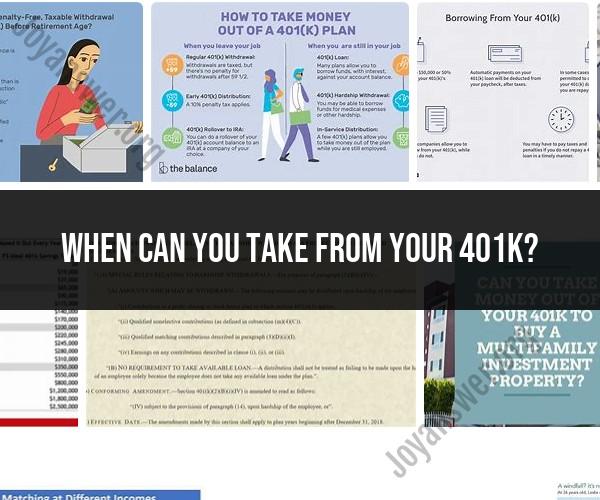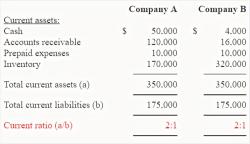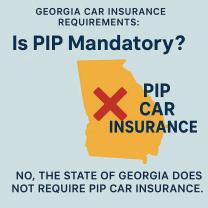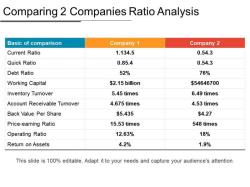When can you take from your 401k?
The rules regarding when you can access funds from your 401(k) retirement account are governed by the Internal Revenue Service (IRS) in the United States. Here are the key guidelines and situations in which you can take withdrawals from your 401(k):
Age 59½ Rule: The general rule is that you can start taking withdrawals from your 401(k) penalty-free once you reach the age of 59½. These withdrawals are subject to regular income tax, but there is no additional early withdrawal penalty.
Early Withdrawal Penalty: If you take withdrawals from your 401(k) before the age of 59½, you will typically incur an early withdrawal penalty of 10% on the amount withdrawn in addition to regular income tax. This penalty is designed to discourage early access to retirement savings.
Exceptions to the Penalty: There are some exceptions to the early withdrawal penalty, which may allow you to access your 401(k) funds before age 59½ without incurring the 10% penalty. These exceptions include:
- Disability: If you become disabled, you may be eligible for penalty-free withdrawals.
- Substantially Equal Periodic Payments (SEPP): You can set up SEPP arrangements that allow you to take a series of substantially equal withdrawals without the 10% penalty, provided you follow specific IRS guidelines.
- Medical Expenses: If you have unreimbursed medical expenses that exceed a certain percentage of your income, you may be able to withdraw funds to cover these expenses without the penalty.
- First-Time Home Purchase: You can withdraw up to $10,000 penalty-free for a first-time home purchase (subject to certain conditions).
- Qualified Domestic Relations Order (QDRO): In the case of divorce or separation, a QDRO may allow your ex-spouse to receive a portion of your 401(k) without the penalty.
- Military Service: Certain military service members may be eligible for penalty-free withdrawals.
Required Minimum Distributions (RMDs): Once you reach the age of 72 (or 70½ if you reached that age before January 1, 2020), you are generally required to start taking minimum distributions from your 401(k) account. These are known as Required Minimum Distributions (RMDs), and they are subject to income tax. Failure to take RMDs may result in significant penalties.
In-Service Withdrawals: Some 401(k) plans offer in-service withdrawals, allowing you to take funds from your account while still employed by your current employer. The rules and availability of in-service withdrawals vary by plan, so check with your plan administrator.
Hardship Withdrawals: Some plans allow for hardship withdrawals in cases of financial hardship. These withdrawals are subject to income tax and the 10% early withdrawal penalty unless an exception applies.
It's essential to understand your specific 401(k) plan's rules and consult with a financial advisor or tax professional when considering withdrawals. Additionally, consider the long-term impact of taking withdrawals on your retirement savings, as early withdrawals can significantly reduce the amount available for your retirement years.
401(k) Withdrawals: When Can You Access Your Funds?
You can access your 401(k) funds when you leave your job, reach age 59 1/2, or become disabled. However, there are some important things to keep in mind before making a 401(k) withdrawal.
Early Withdrawals
If you withdraw money from your 401(k) before age 59 1/2, you will generally have to pay a 10% early withdrawal penalty tax. There are some exceptions to the early withdrawal penalty, such as if you use the money to pay for qualified education expenses or if you are substantially disabled.
Required Minimum Distributions (RMDs)
Once you reach age 72, you must start taking required minimum distributions (RMDs) from your 401(k) each year. RMDs are based on your life expectancy and the balance of your account. If you do not take your RMDs, you will have to pay a penalty tax of 50% of the amount that you should have withdrawn.
How to Access Your 401(k) Funds
To access your 401(k) funds, you will need to contact your plan administrator. You can usually request a withdrawal online, by phone, or by mail.
Considerations Before Making a 401(k) Withdrawal
Before making a 401(k) withdrawal, it is important to consider the following:
- The early withdrawal penalty tax: If you are under age 59 1/2, you will generally have to pay a 10% early withdrawal penalty tax.
- The impact on your retirement savings: Withdrawing money from your 401(k) before retirement can reduce your retirement savings.
- Your financial needs: Make sure that you only withdraw money from your 401(k) if you absolutely need it.
If you are considering making a 401(k) withdrawal, it is important to talk to a financial advisor to discuss your options and make sure that you are making the best decision for your financial situation.
Here are some additional tips for navigating 401(k) withdrawals:
- Plan ahead. Think about when you will need to access your 401(k) funds and how much money you will need. This will help you to make a plan for your withdrawals and avoid making any rash decisions.
- Consider your options. There are a number of different ways to access your 401(k) funds, such as taking a lump-sum withdrawal, rolling your account over to an IRA, or taking distributions over time. Choose the option that is best for your financial situation and retirement goals.
- Be tax-aware. Keep in mind that 401(k) withdrawals are generally taxable as ordinary income. If you are under age 59 1/2, you may also have to pay a 10% early withdrawal penalty tax.
- Talk to a financial advisor. If you have any questions about 401(k) withdrawals, talk to a financial advisor. They can help you to understand your options and make a plan that is right for you.












